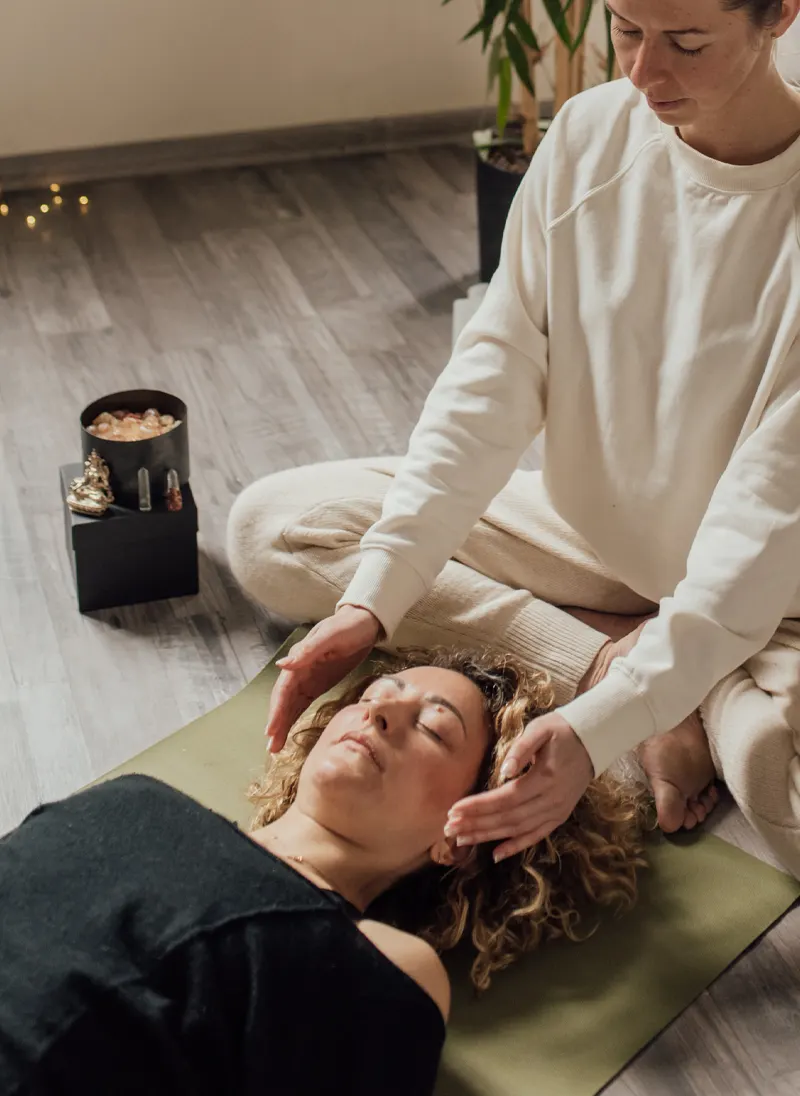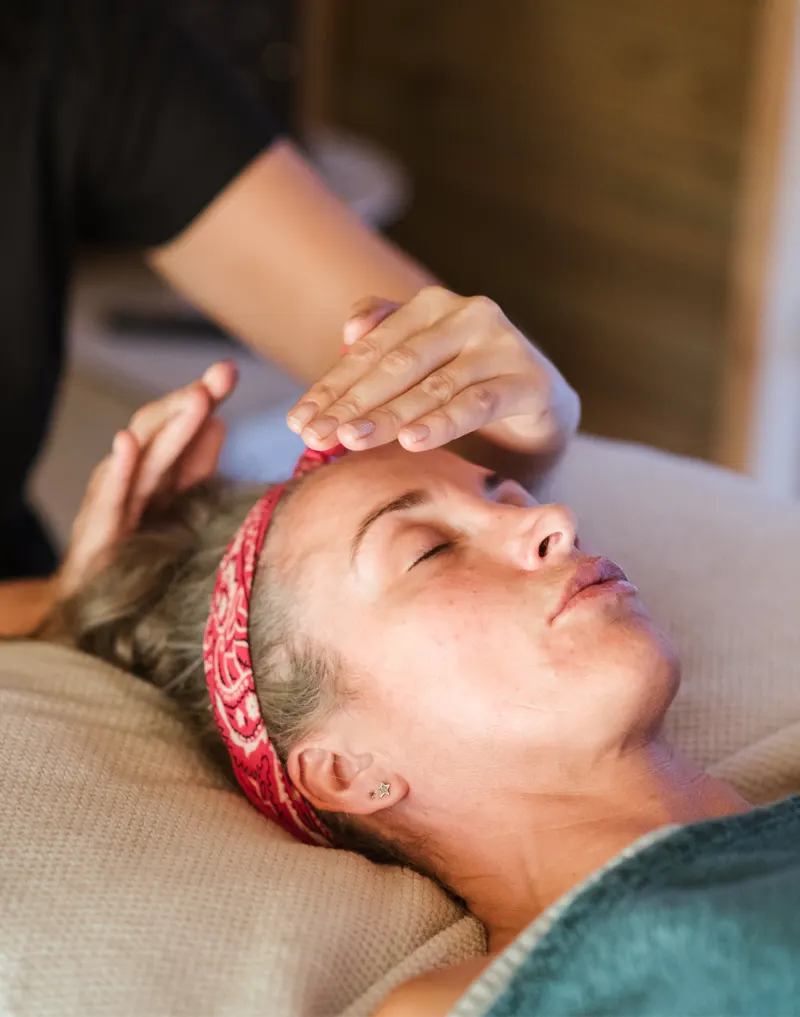Reiki
One alternative therapy offered by Empowered and Authentic Living is Reiki, a complementary therapy based on the flow and balance of a person’s energy.
LEARN ABOUT US AND MEET OUR THERAPISTS
About Reiki
Reiki is a spiritual healing practice based on long-held Eastern beliefs about energy balance. Japanese lay monk and samurai, Mikao Usui, originated the modern practice of Reiki. Usui founded the first Reiki school and clinic in 1922 in Tokyo. However, according to Medical News Today, people have practiced forms of Reiki for 2,500 years.
Reiki is not a religion.

The Underlying Premise of Reiki
Reiki is based on the universal flow of energy. Indeed, “Rei” means universal, and “ki” is life energy. (You may have heard the Chinese word for this energy: Chi [or qi], pronounced “chee” as in tai chi).
According to Eastern medicine, energy flows through all people. Furthermore, energy stagnates in the body wherever you experience physical or emotional pain. This enhancement of energy flow is the same theory on which acupuncture is based.
Therefore, the purpose of Reiki is to remove these energy blocks, so that the energy can flow freely and be balanced throughout the body. This results in healing the mind, body, and spirit.
The Five Precepts of Reiki
Just for today, I will not worry.
Just for today, I will not have anger.
Just for today, I will work with integrity.
Just for today, I will be grateful.
Just for today, I will be kind to all living things.
What a Reiki Practitioner Does
Similar to massage therapists, Reiki Masters use their hands and a massage table. However, during a Reiki session, you are clothed. What’s more, at Empowered and Authentic Living, the practitioner does not touch you but slowly moves their hands above your body to manipulate the flow of energy.
Reiki’s Scientific Benefits
By all reports, Reiki is a complementary therapy. This means that it’s used in combination with traditional Western medicine or clinical therapy—not to replace it. Hospitals, hospices, mental health offices, and yoga studios use Reiki.
Although the entire scientific community does not yet promote the potential health benefits of Reiki, scientists agree that it is a complementary therapy. What’s more, they agree that Reiki is not harmful—in keeping with the medical oath to “first, do no harm.”
Although the scientific jury is still out, various scientific studies have supported the use of reiki to achieve the following benefits. Reiki may help:
- Relieve your pain, anxiety, tension, and fatigue—even when conducted at a distance
- Relax you, improve your mood, and enhance your well-being
- Reduce your stress
- Improve symptoms of depression and anxiety
- Stimulate your immune system
- Promote self-healing
- Insomnia and quality of life
According to the Cleveland Clinic, along with traditional therapy, it may help cancer, chronic pain, infertility, digestive problems, Parkinson’s disease, and even prepare you for surgery.
It may also foster feelings of:
- Peace
- Deep relaxation or meditative state
- Warmth or sleepiness
- Increased well-being
- Wellness
Researchers have conducted many other studies on Reiki. Moreover, people who have had Reiki treatments are avid supporters.
Possible Side Effects of Reiki
Occasionally, the release of the body’s energy toxins after a Reiki session may cause temporary unwanted symptoms such as
- Headache
- Stomach upset
- Tiredness
- Weakness
If one or more of these symptoms occurs after your Reiki session, rest, drink plenty of water, and/or eat lighter meals.

Reiki at Empowered and Authentic Living, PLLC
In addition to being a licensed professional counselor, Justin Fink is a Reiki practitioner at Empowered and Authentic Living.
He has found that this ancient form of energy healing helps remove longstanding blocks of energy, purifying the body’s energy system.
As a teacher, Justin also shows his client’s how to use Reiki for themselves, offering lessons and attunements to open them up to receive Reiki energy.
CONTACT OUR OFFICE
